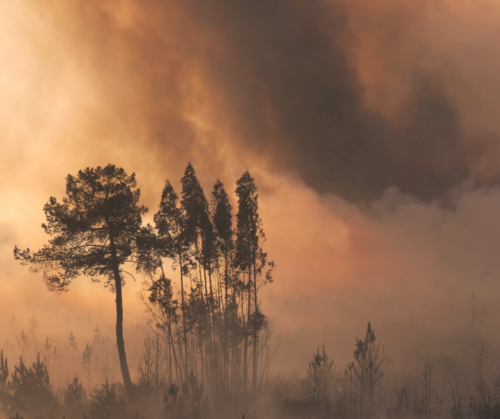“Our hearts go out to the Australian community, including ERS members and our colleagues from the Thoracic Society of Australia and New Zealand (TSANZ). Just days after TSANZ issued a statement to declare climate change as a medical emergency, Australia was hit by one of the most serious bushfire disasters in recent history.
“While people should have been enjoying the New Year and Christmas, and the start of the Australian summer, out-of-control bushfires caused a catastrophe with a truly global impact as fumes reached as far as South America and tons of CO2 and particles were launched into the atmosphere.
“The lives of many healthcare workers, their colleagues and families have been affected, and clinical services were flooded with patients in need of urgent help. Even far away from the directly affected areas, the consequences on the health of citizens were visible. Many will have seen the footage of the tennis player who had to stop her match in respiratory distress; respiratory patients do not usually make world news, but they represent the largest group to suffer because of the bushfires.
“Exacerbated by the heatwave, the fires inflict a massive burden on citizens. The inhalation of hot air causes injury to the airways when in direct contact with fire, and the inhalation of irritating or toxic gas in the air, and dangerous dusts from burnt buildings, are just a few of the problems.
“These fires also impose additional stress on healthcare professionals, who may be uncertain about their own situation but who continue to care for scores of people, each with their own devastating story. The mental health and respiratory wellbeing of healthcare workers who are providing support during such disasters should not be overlooked.
“The European Respiratory Society wishes to express its solidarity with the victims and the healthcare givers in the affected regions, and we wish to support the activity of the Red Cross Australia to support those affected. Taking a longer-term view, societies like ERS, our partners at TSANZ and the Forum of International Respiratory Societies (FIRS) can help by:
- Highlighting the call to action for global awareness of climate change and advocacy for effective CO2-reduction policies; fires of this scale aggravate the problem, and this has worldwide consequences. Climate change must also be considered a medical emergency.
- Reinforcing the awareness for the interconnectedness of climate change, air pollution, and all aspects of lifestyle – it does matter how we live our lives.
- Help to prepare strategies to protect the lungs of citizens and anybody involved in the search, rescue and care of casualties. This includes protection from heat inhalation injury, inhalation of bushfire-related air pollution, and coping with the stress imposed by a sudden increase in patient numbers.
- Help to map out and research the health impact of similar disasters, in order to better plan for the deployment of healthcare workers to cope with the consequences of the short- and long-term effects of bushfires.
- Educate and train healthcare workers and public health officials about effective ways to reduce the health effects of bushfires and other high pollution episodes, as well as about effective ways to prevent chronic exposure.
“On behalf of the European Respiratory Society, its Advocacy Council and the Environment and Health Committee, we send a message of strong support to our colleagues in Australia.”
Thierry Troosters, President
Anita Simonds, President Elect
Jørgen Vestbo, Advocacy Council
Barbara Hofmann, Environment and Health Committee





